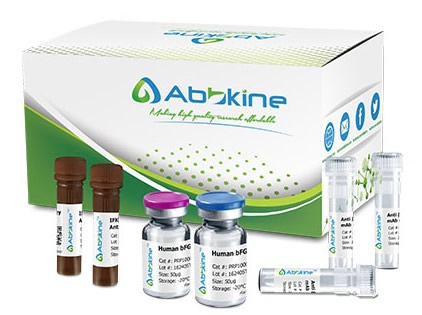The endothelial cell protein C receptor (EPCR) functions as an important regulator of the protein C anticoagulant pathway by binding protein C and enhancing activation by the thrombin-thrombomodulin complex. EPCR binds to both protein C and activated protein C (APC) with high affinity.A soluble form of EPCR (sEPCR) has recently been detected in normal rat plasma and has been shown to bind protein C and APC with an affinity similar to that of intact membrane-bound EPCR. In healthy individuals, sEPCR circulates at a concentration of 2.5 nM, a level that can increase up to 5-fold in patients with sepsis or systemic lupus erythematosus. In contrast to membrane-bound EPCR, sEPCR inhibits protein C activation over large vessel endothelium in culture.
Bovine Endothelial protein C receptor (PROCR) ELISA Kit employs a two-site sandwich ELISA to quantitate PROCR in samples. An antibody specific for PROCR has been pre-coated onto a microplate. Standards and samples are pipetted into the wells and anyPROCR present is bound by the immobilized antibody. After removing any unbound substances, a biotin-conjugated antibody specific for PROCR is added to the wells. After washing, Streptavidin conjugated Horseradish Peroxidase (HRP) is added to the wells. Following a wash to remove any unbound avidin-enzyme reagent, a substrate solution is added to the wells and color develops in proportion to the amount of PROCR bound in the initial step. The color development is stopped and the intensity of the color is measured.
Bovine Endothelial protein C receptor (PROCR) ELISA Kit listed herein is for research use only and is not intended for use in human or clinical diagnosis. Suggested applications of our products are not recommendations to use our products in violation of any patent or as a license. We cannot be responsible for patent infringements or other violations that may occur with the use of this product.
bio-equip.cn




